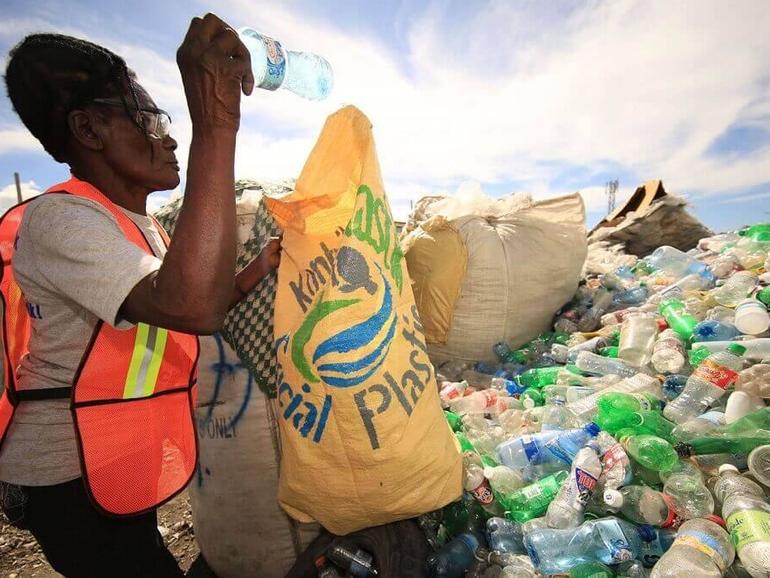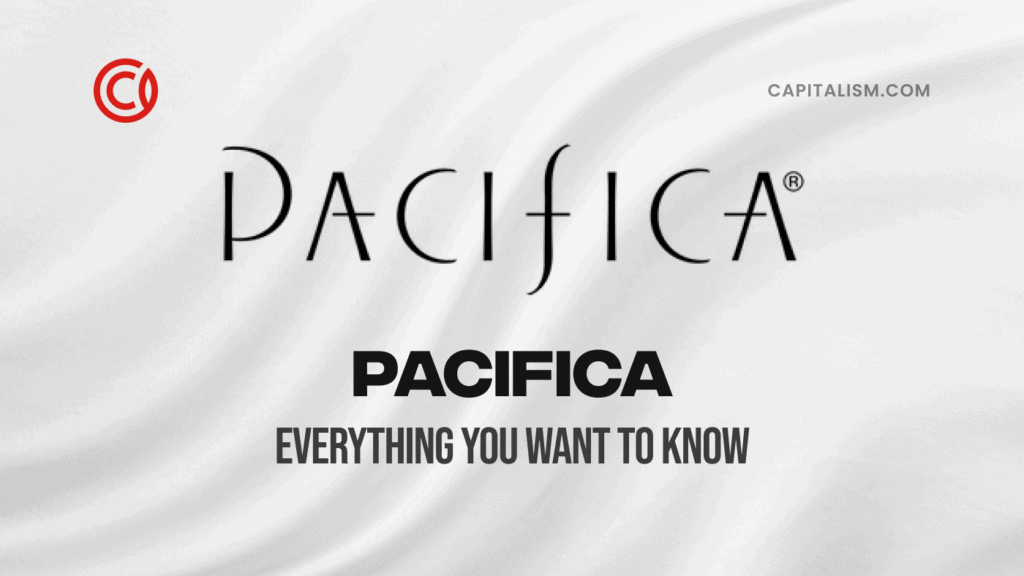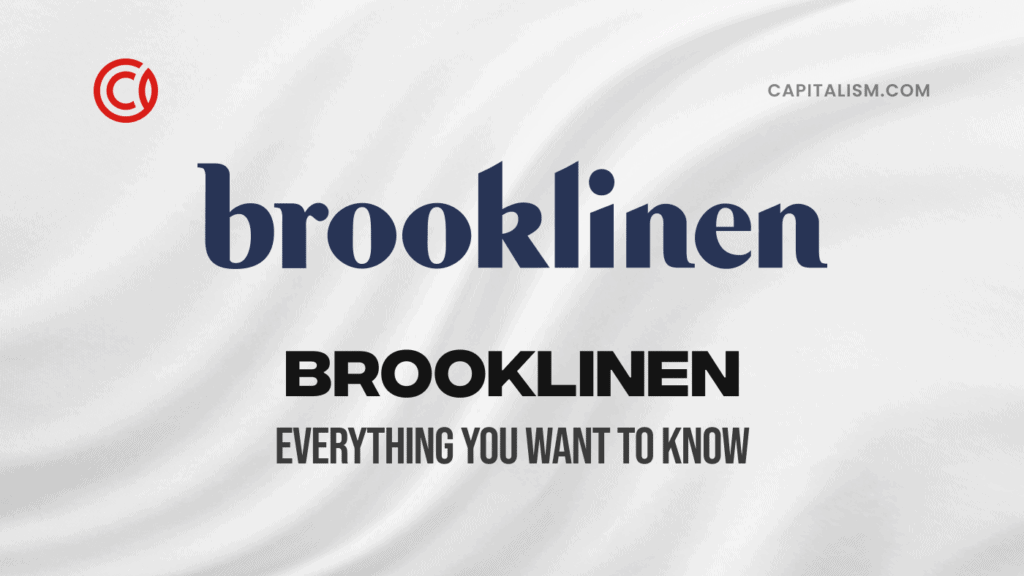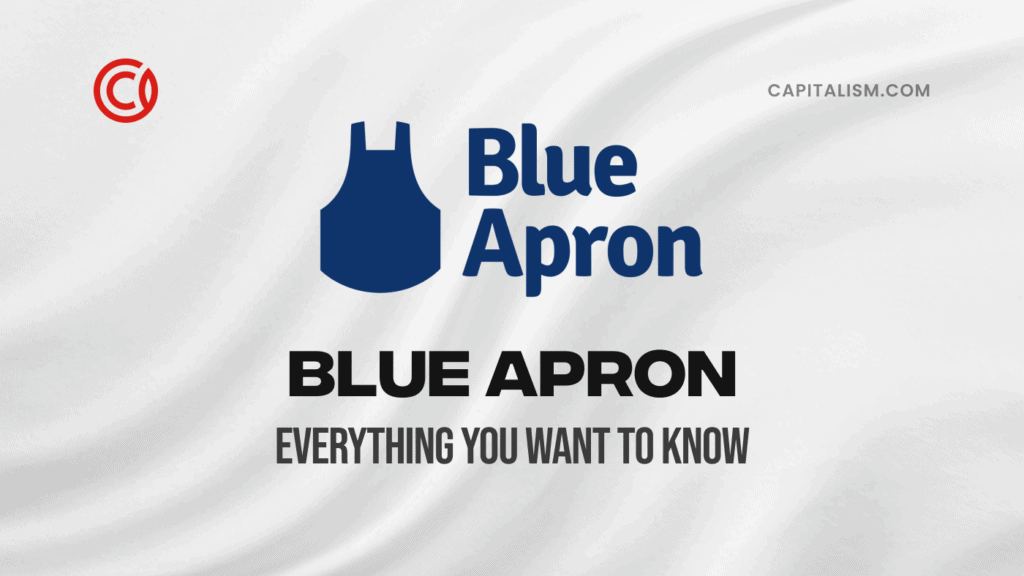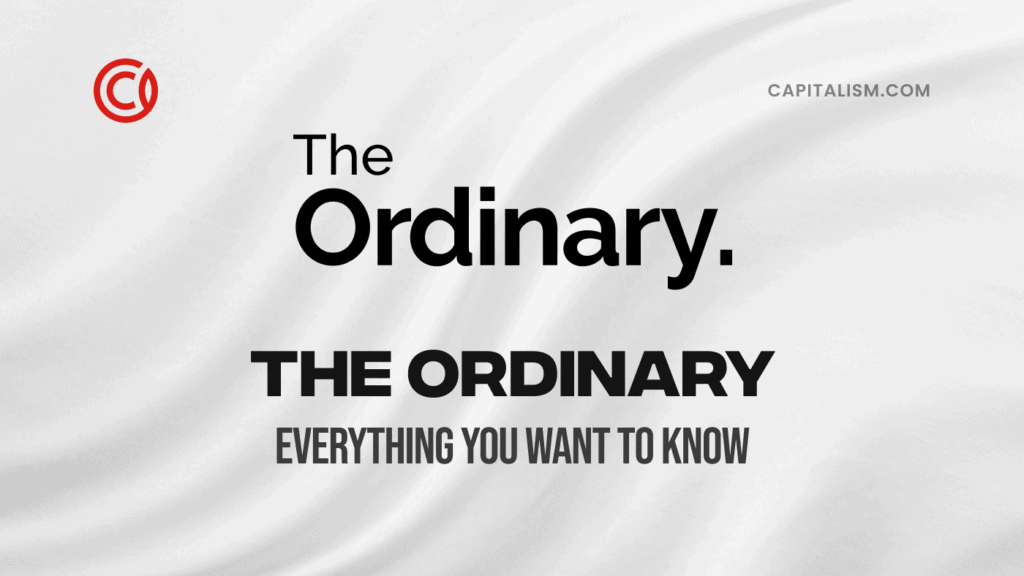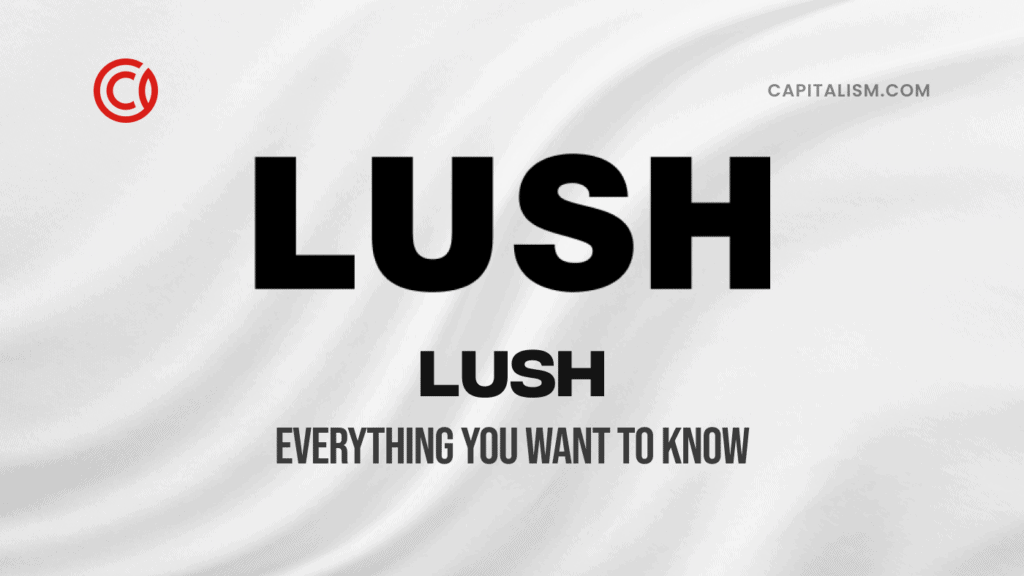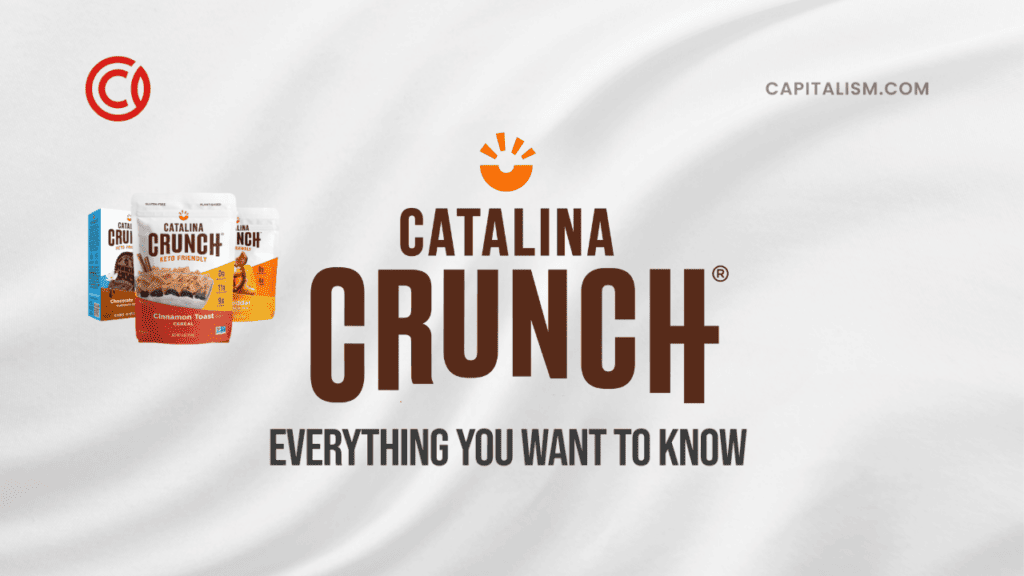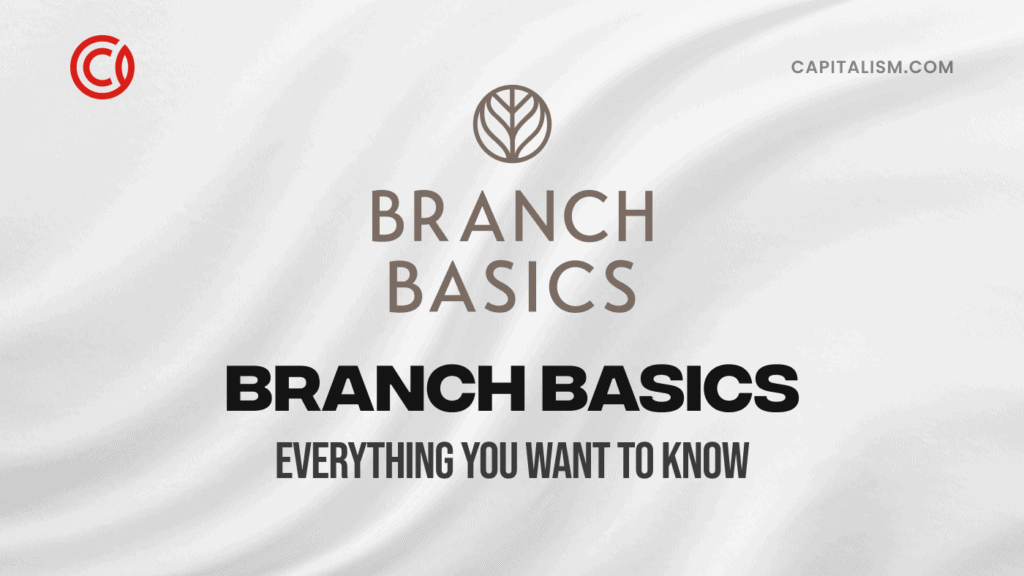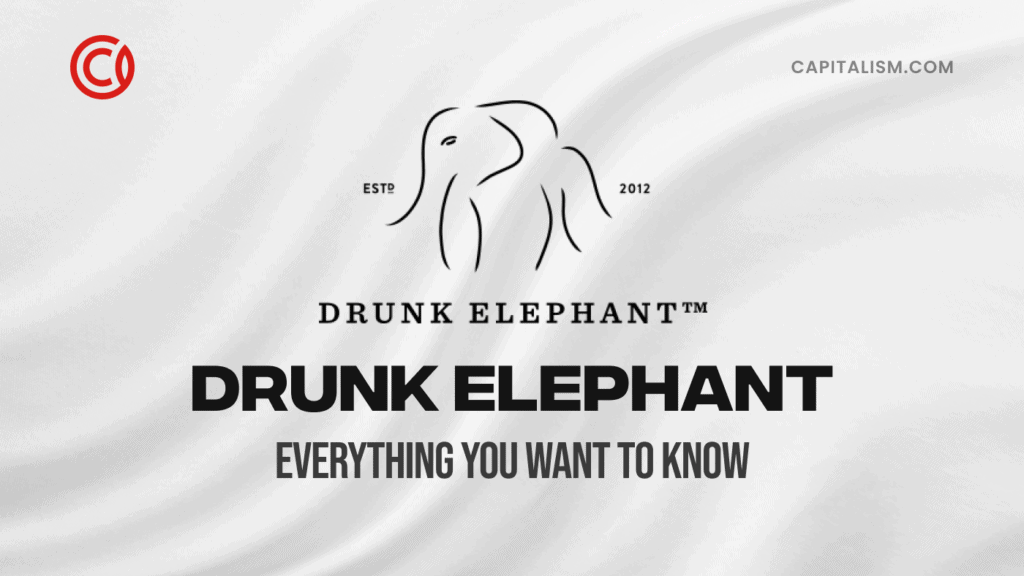Meet an Entrepreneur Who's Solving Environmental Issues
Every minute, an entire garbage truck full of plastic waste ends up in the ocean. That's 1,440 truckloads of plastic trash per day. Yes, most developed countries participate in recycling programs to combat one of today's most pressing environmental issues. But recycling isn't even a thought for those merely trying to survive in impoverished nations.
Ocean plastic is one of the top environmental issues the world faces today. This massive amount of plastic harms marine life, enters the food chain, and is a public health hazard. While people could spend their resources cleaning the oceans, these efforts would be futile. For every bag of trash removed, another truckload of plastic refuse awaits.
David Katz became aware of this problem firsthand. As an avid scuba diver, he often found himself surrounded by more floating trash than fish. Some areas had solid blankets of plastic covering the surface. Encountering this much garbage on nearly every dive made David realize how crucial it was to develop a solution.
What if he could turn plastic into gold?
The idea seemed far-fetched at first, but could it be possible to use plastic as a form of currency? Would David be able to help those living in poverty at the same time?
Surprisingly, yes.
Plastic Bank became David's solution to both problems. The idea evolved after years of mediation by the ocean. He teamed up with Shaun Frankson, a digital strategist, to make this one-of-a-kind vision a reality. In 2013, David founded the company to reduce the amount of plastic entering waterways while providing poor individuals with a reliable stream of income.
How Bad Is Ocean Plastic?
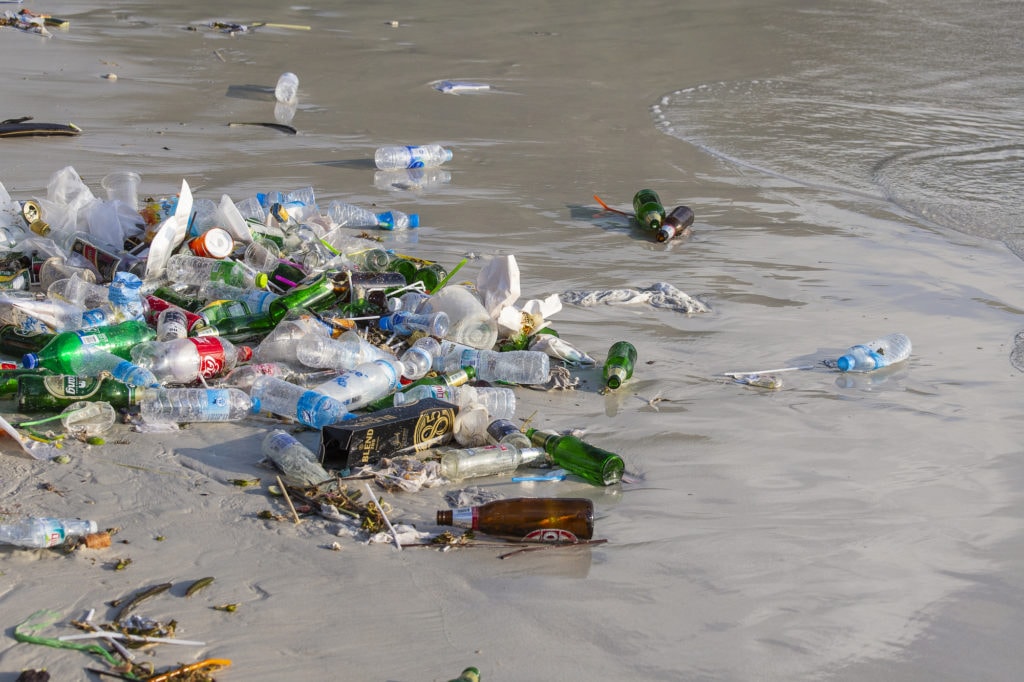
Sure, everyone knows pollution is a thing, but are the oceans really that full of garbage? Unless you witness it for yourself, it's hard to imagine how much trash is out there. Scientists estimate over 150 million metric tons of plastic has accumulated in the earth's waters. Of course, it's impossible to know for sure since no one can swim to the bottom of the ocean.
And that number doesn't seem to be slowing down anytime soon. By 2040—only two decades from now—the amount of trash entering the ocean each year could triple.
Now, this wouldn't be such a massive problem if plastic dissolved or decomposed. But it takes hundreds of years to disappear. In the meantime, all this trash kills fish and other marine animals. These creatures try to navigate around the garbage but often get entangled in it. They even ingest pieces of plastic.
But you're not a fish, right? Sure, you may not swim in the ocean, but the plastic in it can end up on your dinner table. Eating fish from polluted waters may harm your family. And for David, seeing all this trash during his scuba adventures was enough to make him take action.
Yes, there are already ocean cleanup organizations out there. However, these groups only remove trash from the water—they don't stop it from getting there in the first place. David realized this dilemma and decided he needed to find a way to stop ocean plastic in the first place.
Plastic Bank exists to encourage communities to take part in large-scale recycling projects. And this is how he came up with the brilliant idea to tackle another societal issue simultaneously—poverty.
Extreme Poverty Across the Globe
Abject poverty is now a foreign concept to most of the world, thanks in large part to capitalism. But as a society, we are only as wealthy as our most impoverished communities. During his travels, David encountered extreme poverty in many countries, and he couldn't ignore it.
Plastic Bank opened its first center in Haiti, often considered the poorest country in the Western Hemisphere. According to the Central Intelligence Agency, nearly 60% of the country's citizens live below the poverty line.
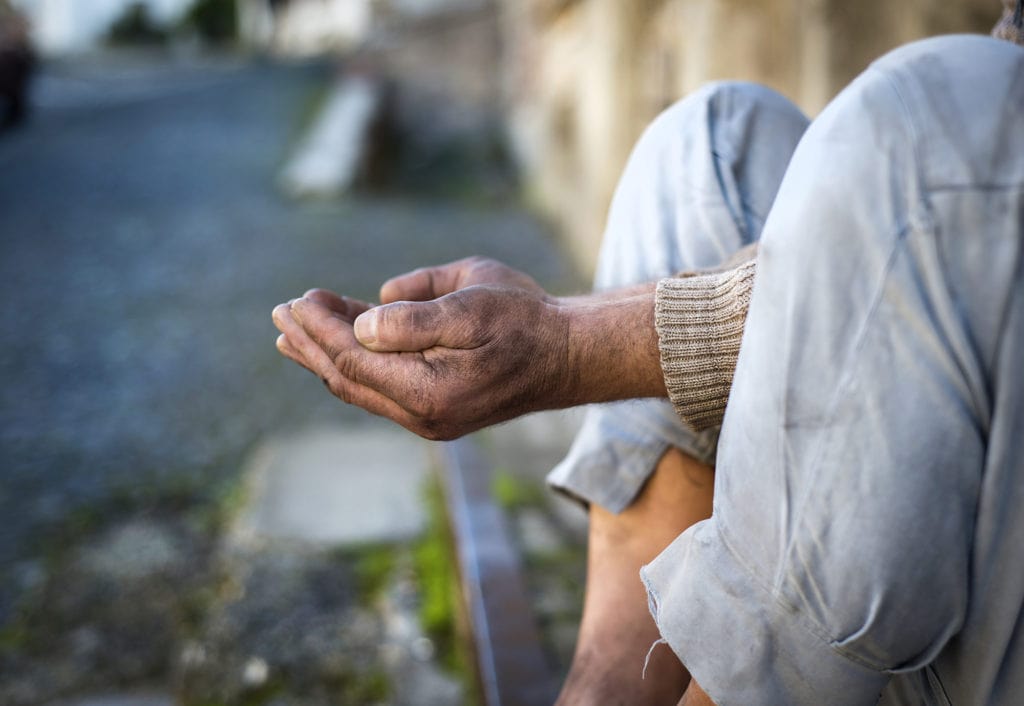
David chose Haiti not only because of its poverty rate but also because of its plastic pollution problem. When he began, there were no recycling centers in the country. He decided to create storefronts where people could return plastic waste products for money.
The idea quickly caught on, and collectors signed up from all across Haiti. In an article titled, "We're throwing away a fortune in plastic every year. This company is cleaning up," CNN reports, "The company says it has over 2,000 collectors working in the country, with its full-time collectors on average 63% above the poverty line thanks to the income they make from the scheme."
Seeing the success of his operation, David began to branch out in other countries. Today, Plastic Bank has a presence in Haiti, the Philippines, Indonesia, and Brazil. Egypt, Colombia, and Vietnam are also on his radar.
An Eco-Friendly Bitcoin for the Earth
Most people don't see dollar signs when they look at plastic waste, but that's precisely what David's creative mind envisioned. Plastic Bank uses blockchain technology to allow collectors to trade used plastic for money. He coins this currency Social Plastic.
In an article titled, "The Plastic Bank: Using Plastic Refuse To Create A Global Currency For The Poor," Forbes reports that David helps people transform literal trash into tangible gold. "The Plastic Bank continues on its quest to create a currency for the world's poor using, as its name suggests, plastic."
Collectors deposit their earnings into an online account—a savings account of sorts. IBM teamed up with Plastic Bank to develop a secure hyper ledger. This blockchain banking application is very similar to Bitcoin, the popular cryptocurrency. Having access to an online "bank" account lets collectors use credit to pay for food, household goods, fuel, and even school tuition.
Cleaning up trash is a money-making opportunity in countries where people struggle to afford even the most basic necessities. It offers families a way to supplement their incomes and help the environment. Plastic Bank sells the collected plastic to brands looking to incorporate recycled materials into their business practices. It's a win-win for all parties involved. And as Plastic Bank becomes more visible in countries around the world, Social Plastic becomes more valuable.
How Does Plastic Bank Work?
The ultimate goal of Plastic Bank is to reduce both ocean plastic and poverty. While these two problems may seem unrelated, David saw a unique opportunity to connect them both.
Recycling prevents plastic pollution. Money cures poverty. Monetizing plastic encourages people to stop and pick up trash.
"Plastic Bank is treating plastic like currency to tackle waste and poverty," ZDNet reports. "The Plastic Bank is now a chain of stores for the ultra-poor." Anyone living below the poverty line can trade in plastic trash and purchase anything from the store. And transforming plastic into a valuable commodity keeps it out of the ocean.
Is There Really a Need—or Want—for Social Plastic?
At face value, David's Plastic Bank doesn't seem like a viable business model. How can you turn plastic into cash? Recycling centers aren't huge money-makers.
That's where David proved his doubters wrong.
There is both a huge need and desire for post-consumer plastic. The urgency to save the planet has become a hot topic in developed countries everywhere. Younger generations worry the earth will not be able to sustain them in the future. People continually seek out eco-friendly options, and they want those aiding in the process to earn a fair wage.
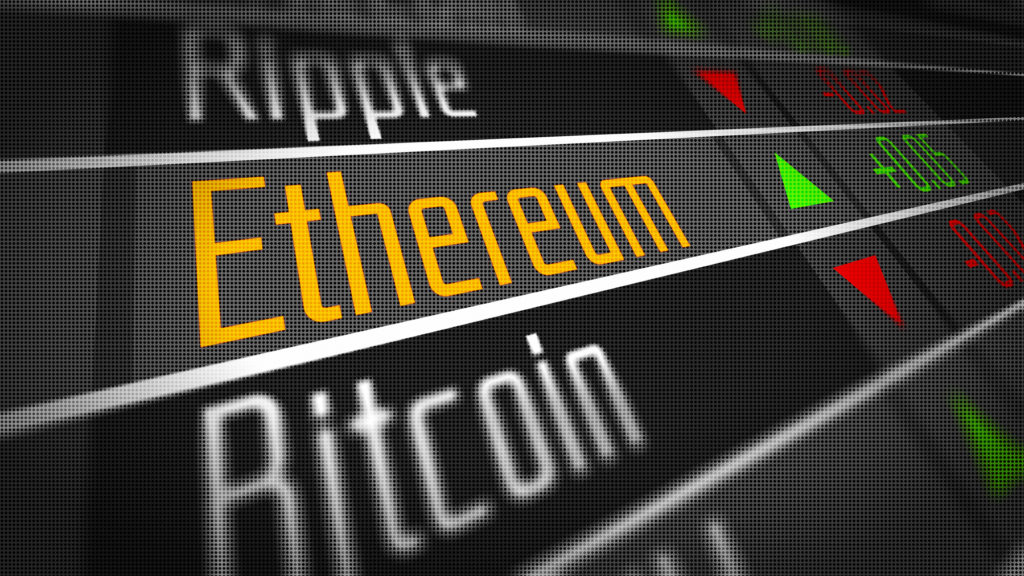
As a result, many of the top corporations willingly pay premium prices to obtain ethically-sourced plastic. Plastic Bank provides these companies with the product they need, and in return, David's company can afford to pay collectors the highest price in the recycling industry.
Some of the most well-known brands buy Social Plastic from Plastic Bank. Henkel, Lombard Odier, SC Johnson, and Greiner Packaging are just a few of David's corporate collaborators. Each partnership has helped reduce plastic waste significantly, for example:
- Henkel helped Plastic Bank establish David's first recycling center in Haiti.
- Lombard Odier created the "Blue Note" to finance the collection and recycling of plastic.
- SC Johnson opened the first mobile Plastic Bank branch in Indonesia.
- Greiner Packaging dedicated itself to improving the lives of people across the Philippines.
WowShack, an Indonesia-based content source, proclaims, "Plastic Bank – The $4 Trillion Economy That Will Solve Indonesia's Plastic Crisis." Those collaborating with Plastic Bank offer the highest trade-in prices. "They will pay $0.50 (Rp. 7,000) per kilo of plastic. With 8 trillion tons of trash, they are unleashing a $4 trillion economy."
Consider This Plastic Bank Success Story
Is anyone actually benefiting from Plastic Bank? Bloomberg Businessweek reports, "Treating Plastic as Currency Helps Keep It Out of the Ocean," and explains how Nyoman Dartini benefitted firsthand.
Nyoman is a 60-year-old woman living in Bali. Her income as a sweeper is not enough to support the needs of her family. But thanks to Plastic Bank, she now brings home an additional 100,000 rupiah (approximately $7) each month. As she states, "If I didn't have this money, we would have to take out loans."
In the United States, $7 barely covers the cost of a pumpkin spice latte. But in Bali, a province in Indonesia, you can put food on the table or clothe your family with that much money.
Collecting trash and trading it in for cash isn't a new idea, but Plastic Bank offers collectors something more—peace of mind. In countries where petty crime runs rampant, collectors don't have to worry about robbers targeting them. Instead of carrying around cash, collectors can store their income in their Plastic Bank account.
Plastic Bank also makes it possible for collectors to take out loans, often for the first time. Whereas they wouldn't have qualified for loans in the past, having a Plastic Bank account makes them a trustworthy borrower in lenders' eyes. And when it comes time to repay, collectors can do so with—yes, you guessed it—plastic.
What Are the 10 Major Environmental Problems?
Ever since the dawn of man, the environment has waxed and waned according to human behavior. Even though many would say the future looks bleak, entrepreneurs around the world seek solutions that can heal the planet. Here's a list of environmental issues affecting everyone in the world:
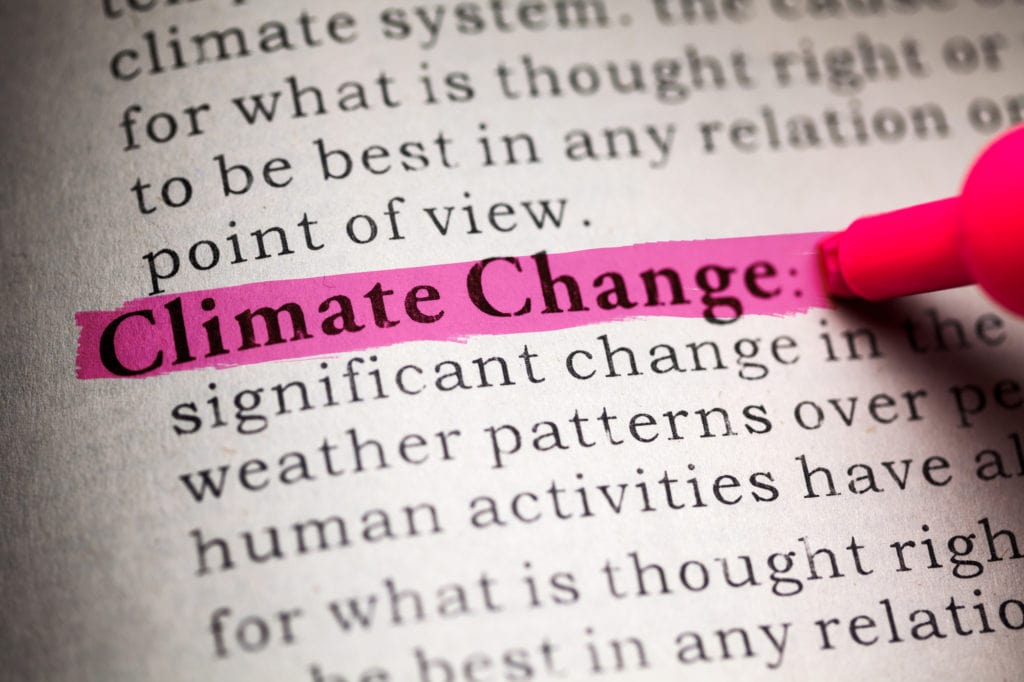
Climate Change:
Increased atmospheric levels of carbon dioxide emissions and other greenhouse gases may negatively affect current and future generations' health.
Endangered Species:
The world is in the middle of the sixth mass extinction. Yes, it's happening right now, and humans are to blame.
Deforestation:
The World Wildlife Fund estimates more than 27% of the Amazon biome will be treeless by 2030 due to deforestation.
Air Pollution:
Breathing in unhealthy air is dangerous for all forms of life on Earth. According to the WHO, outdoor air pollution kills 4.2 million people each year.
Water Pollution:
Water is essential to life, but contaminated water kills. Acidification, plastic waste, human-generated noise, and offshore drilling are the most common water pollution sources.
Loss of Biodiversity:
The world cannot survive without biodiversity. As biodiversity declines, ecosystems will deteriorate until they vanish for good.
Waste Management:
Single-use plastic and other forms of refuse end up in two places: landfills and the ocean. Recycling and composting are crucial to reducing waste levels.
Ozone Depletion:
The ozone hole over Antarctica peaked in early October of this year. Changes in stratospheric temperatures directly relate to ozone depletion.
Energy:
Electricity and fossil fuels account for 26.9% and 22% of greenhouse gas emissions, respectively. Transitioning to clean and sustainable energy sources will help to lower these figures.
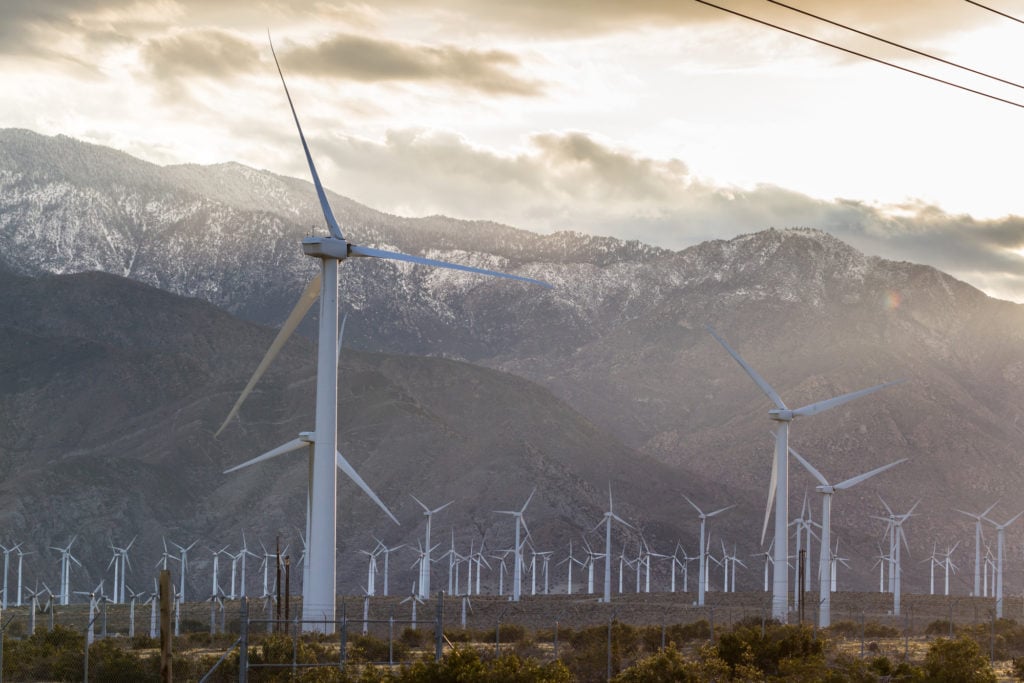
Public Health:
Environmental quality directly relates to public health. Clean water, fresh air, and sound infrastructure are essential for a healthy population.
While reading this list may feel exhausting, take heart!
Not only can all of us make a difference in our individual consumer behavior. We can also count on entrepreneurs like David Katz… and YOU… to take ownership of these problems and create solutions that make a difference.
When David began Plastic Bank, he saw it as a way to not only help poor people, but he also knew it would lower water pollution levels. The world needs more capitalists willing to think outside the box to find solutions to these environmental issues examples.
What Exactly Does "Environmental Issues" Mean?
Environmental issues are the harmful effects certain human activities have on the earth. These issues may affect the air, water, food chain, land, and health of the world. And because humans are responsible, it's up to people to stop the problem by addressing environmental issues and solutions.
What Is the Biggest Environmental Issue in the Ocean?
Plastic. And as one of the top environmental issues of 2020, it's also the most significant problem humans can fix on their own.
Plastic, especially single-use plastic, is terrible for the environment. It takes plastic 1,000 years to decompose in landfills and 450 years to break down in the ocean. For reference, it only takes paper a few weeks to fully decompose in landfills and mere seconds to disintegrate in water.
As David realized, keeping plastic waste out of the oceans in the first place is the best way to tackle this issue. Plastic Bank does just that. By incentivizing plastic recycling, those who would normally walk right past trash now have a reason to pick it up. Turning disposable plastic into Social Plastic prevents water pollution and helps poor people at the same time.
What Is the Biggest Cause of Pollution?
As painful as it is to hear, humans are the biggest cause of pollution. While countless environmental issues articles mention specific types of pollution, most of them come from human-generated sources. Here are a few:
- Single-use plastics and trash
- Energy consumption
- Industrial mining
- Burning of fossil fuels
- Animal agriculture
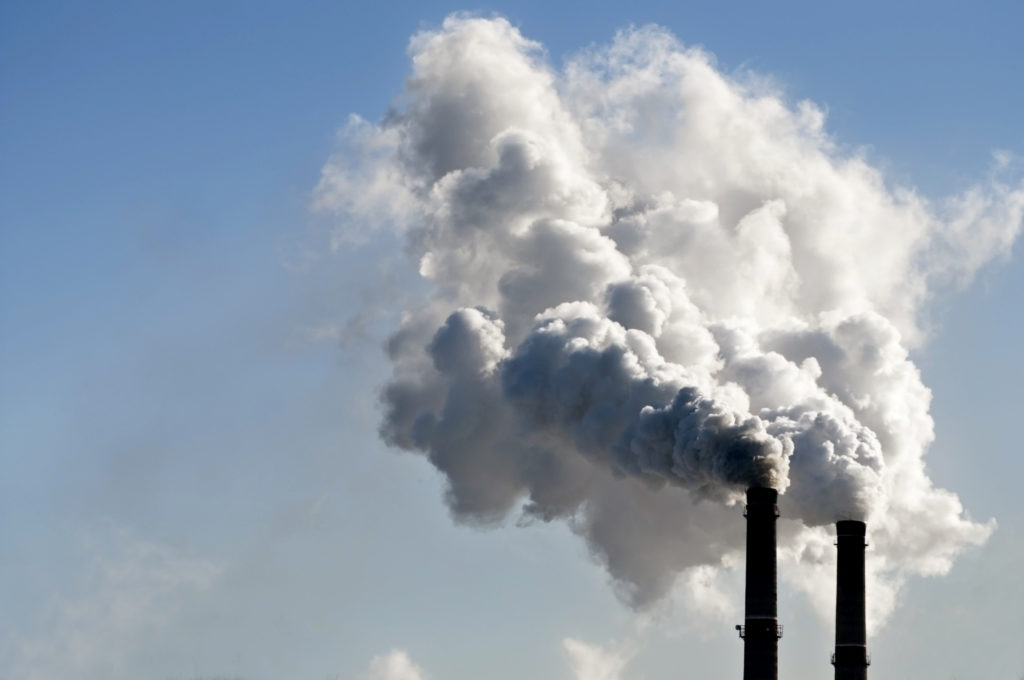
How Can We Solve Environmental Problems?
Environmental issues don't only affect the poor in other countries; plastic waste's global impact could reach a peak in your lifetime. Right now, there is more trash than ever entering oceans every day. According to Earth Day Network, plastic garbage is on track to outnumber fish by 2050.
But that grim prediction doesn't have to come true. David believes Plastic Bank will change how people across the world view plastic. No longer will society deemed it as waste. Plastic will have value to all who handle it. Social Plastic can profoundly impact the lives of the poor while also preventing ocean plastic. As David stated in his 2018 TED Talk, "We can all be a part of the solution and not the pollution."
Improving the World Through Collaborative Capitalism
Helen Keller once said, "Alone we can do so little. Together we can do so much." David put this theory to practice as he developed Plastic Bank. Thanks to collaborations across the globe, his company has kept 31,124,187 pounds of collected trash out of the ocean. Can't visualize that amount? Well, that's the equivalent of more than 500,000,000,000 plastic straws, which you could line up around the earth 2,700 times.
With over 21,000 active collectors and numerous global partners, the Social Plastic ecosystem has only just begun. David still has plans to expand Plastic Bank into other countries. It is his goal to finally make ocean plastic and extreme poverty a thing of the past.
Collaborative capitalism makes it possible to brainstorm solutions to the planet's current environmental issues. Every capitalist brings different assets to the table. Combining these strengths will help the world achieve greatness. Plastic Bank is an example of how one man's dream became a reality, thanks to the assistance of many. Capitalism provides the tools, funding, creativity, intelligence, and determination to solve society's problems today.
Now the question is…
What problem will YOU take ownership of solving? Here at Capitalism.com, we go all-in on entrepreneurs because we know they are the people who are best equipped to solve problems they didn’t cause. Together, we can serve our fellow humans and create positive change in the world.
If you’re just getting started, check out this free video series we created just for you. Not only will you find the tools and training you need to change your own life. You’ll also take your first steps toward changing the world. We’ll be here rooting for you the whole way.
